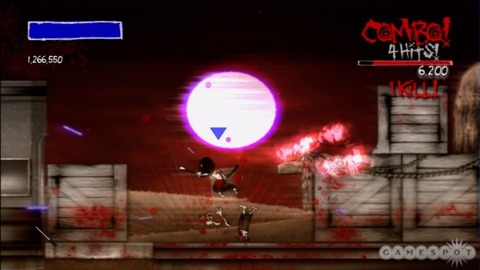Indie devs share insight on going solo
PAX 2010: A panel of independent developers discuss the pros and cons of starting out on their own and the obstacles they face without a publisher.
Who was there: James Silva from Ska Studios, Ron Alpert from Headcase Games, John Krajewski from Strange Loop Games, and Brian Mitsoda from DoubleBear Production.
What they talked about: Before jumping into the meat of the PAX 2010 discussion, the panelists were asked to define what makes an indie game. While they all had their own take on the answer, it seemed that the majority agreed that a game is "indie" when the creators have full control during the entire development cycle.

Krajewski said, "Well technically it's a game that's independent, but what does that mean? I think it has to do with the creativity and personality that's put into it that a big studio and a much bigger team and budget can't experiment with and that kind of shows itself in a lot of indie games."
For others, like Alpert, it means that "someone doesn't own you" and you're free to take a lot of risks.
While these risks come with total creative freedom, the downside is that in reality, people need to get paid. They could also use some health insurance, which Silva said he didn't have.
Mitsoda mentioned that senior developers in the mainstream industry do have high-paying jobs, as well as health insurance, so it's a big risk to leave that behind, especially when they have families to support. However, he said that there seems to be a much larger fan base for indie games now and that there is more awareness.
But games can't sell themselves. Alpert pointed out that developers may know how to make games, but they can't sell them. The ability to pitch a product is "as important, if not more important," he said. He added that a lot of people who come from development do not know how to sell their product. It's something developers need to learn, he said, but there is no roadmap for that.
The measurement of success is also dependent on the individual. Some believe that success means that a game sells enough to make another. In Krajewski's case, he said that "the experience of making the game is rewarding in itself."
Everyone agreed that the game needs to be good enough to stand out on its own and that going to conferences and participating in contests is a way to get the word out.
"Embrace the community as much as you possibly can. Do things that you aren't comfortable doing," suggested Alpert, who advised that developers need marketing. If they can't afford to get it, he said, then they need to get out of their comfort zone and figure out how to do it.
Krajewski mentioned that initially he was an AI programmer who never saw the business side of things, but he suggested that all a person can do is jump in and figure it out along the way.
It helps that the indie community is also incredibly supportive. The panelists suggested to reach out to one another for help. There's no reason to be shy; they noted that everyone is coming from similar backgrounds.
The subject of going with a publisher came up, and Alpert said that they can be useful if they're working with you.
Krajewski recently signed on with a publisher and said that every studio does it differently and it's important to find one that is "willing to work with you and build around what you want to do. It doesn't mean they'll exploit you or change your game."
However, shopping for a publisher can be as hard as getting gamers to notice your project. Silva pointed out that the scene is "flooded with garbage" and that standing out is difficult as long as people continue to pour money into games that aren't very good.
In order to create a good indie game, a solid team needs to be working on it as well. Krajewski said to go after those who "make games in their spare time for fun. Those are the kinds of people you want on your team."
Much of the recent surge in indie games has to do with the technology that is available. It is much easier for developers to create a game using today's tools instead of having to code everything from scratch. This also accounts for the increase in clones that are floating around on the market. Mitsoda felt there should be more variety, but Alpert stated that it is a lot easier to sell something that is already familiar to players, and it makes good business sense sometimes when there are mouths to feed.
If given the chance to go back and do things differently, Krajewski stated that it is important to revisit the idea and do a lot of play-testing. One thing he learned is to let the game grow and to find itself in the process.
Quote: "Avatar bejeweled zombie massage game." --James Silva, who combined everything that seems to be popular into one game idea. Mitsoda responded by saying that the idea will likely happen in about a week.
Takeaway: Life as an indie developer is not glamorous and comes with difficult obstacles to overcome. It is possible to be successful with a motivated and hard-working team, as well as a good business sense to get the word out there. If no one knows about the game, it won't sell regardless of how good it may be.
Got a news tip or want to contact us directly? Email news@gamespot.com
Join the conversation